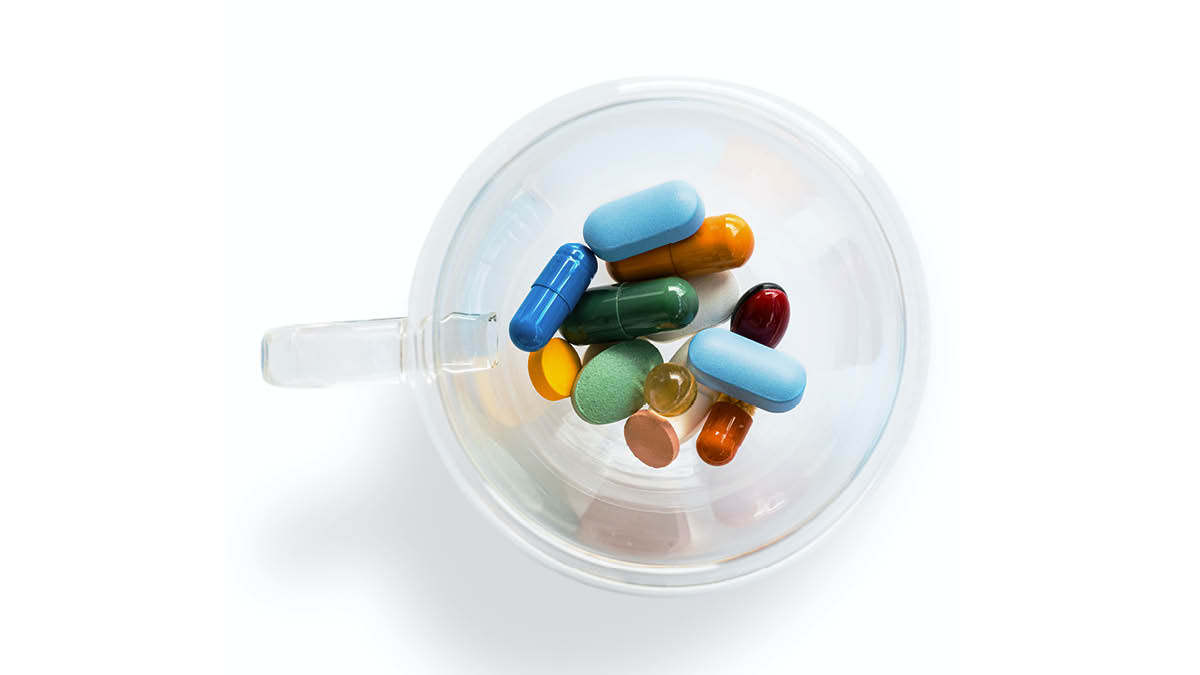A clinical trial involving a psychedelic drug and psychotherapy aims to help patients with hard-to-treat depression and other mental health disorders

A UK neuropharmaceutical company is planning the world’s first clinical trial to treat depression by combining psychotherapy and the mind-expanding psychedelic medicine dimethyltryptamine (DMT).
DMT is a naturally occurring chemical found in tiny amounts in the human brain and in larger amounts in plants. Chemically similar to the neurotransmitter serotonin (5‑HT), it is involved in a variety of physiological functions, including eating, sleep and mood regulation.
The Small Pharma trial follows on from the drive, led by the world-renowned Imperial College London, to bring psychedelic-assisted therapy out of the fringe into the scientific mainstream. Small Pharma is focused on identifying rapid-acting treatments for depression and other mental health disorders, and is collaborating with Imperial’s Centre for Psychedelic Research.
Dr Robin Carhart-Harris, the centre’s head, says: “Psychedelic therapy holds a great deal of promise for treating some very serious mental health conditions and may offer new hope to vulnerable people with limited treatment options.”
Potential patients include many people with depression, who cannot find an antidepressant that works for them or cannot tolerate the associated side-effects.
Coronavirus has exacerbated a critical situation, causing disturbing increases in suicidal thoughts, especially among young adults, according to a study published in October in The British Journal of Psychiatry.
Psychedelics have been shown to have therapeutic benefits in disorders such as depression, substance abuse and post-traumatic stress disorder. These so-called internalising disorders are characterised by debilitating flows of recurring negative thoughts.
DMT was selected for Small Pharma’s trial following preclinical and clinical research suggesting it may have benefit in treating depressive disorders.
Small Pharma has produced its own DMT-based product in line with good manufacturing practice guidelines laid down by agencies controlling authorisation and licensing of pharmaceutical products.
Psychotherapists will support the 36 trial patients before, during and after the intravenous administration of DMT, which is designed to produce a short psychedelic experience or “trip” lasting about 20 to 30 minutes.
The psychedelic experience has been proven in other studies to be critical for the therapeutic process of treating the mental health condition. The experience can induce visual imagery or hallucinations, such as seeing colourful patterns, seeing or hearing things that are not real, and a sense of detachment from thoughts and feelings, changes in sense of time and space, and intense emotions, including happiness and grief.
Think of a Christmas ‘snow globe’: you shake up the snowflakes and then allow them to resettle
Dr Carol Routledge, chief medical and scientific officer at Small Pharma, explains: “Published research into psychedelic treatment for depression has concluded that difficult emotions and upsetting content during a trip can be therapeutically beneficial as they can lead to important insights, which can be discussed with the therapist. They will help patients to interpret and deal with the experiences they have on their trips.”
How does psychedelic-assisted therapy work? Routledge explains: “Think of a Christmas ‘snow globe’: you shake up the snowflakes and then allow them to resettle. DMT is equivalent to the shaking up, and the resettling process to the psychotherapy.
“The shaking up disrupts unhealthy, ingrained thought patterns, allowing the brain to reset itself by creating new neural pathways. This helps the patient to receive and benefit much more from the psychotherapy that wraps around the administration of DMT.“
Clinical research has shown DMT increases connectivity between different brain networks. In turn, this increases synaptic plasticity – the biological process of brain cells changing their connections – enabling learning and memory.
The Small Pharma trial will compare the effect of giving either one or two doses of DMT. Patients will be assessed at intervals of up to three months and given additional psychotherapy if necessary. The benefits of treatment are expected to last six months, but could be significantly longer.
For more information please visit smallpharma.co.uk
References
O’Connor R.C. et al, Mental Health and Wellbeing during the COVID-19 Pandemic: Longitudinal Analyses of Adults in the UK COVID-19 Mental Health and Wellbeing Study, The British Journal of Psychiatry, October 21, 2020
Promoted by Small Pharma
Related Articles
A clinical trial involving a psychedelic drug and psychotherapy aims to help patients with hard-to-treat depression and other mental health disorders
Promoted by

